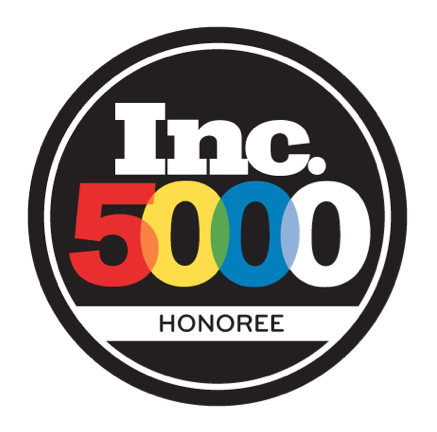 It’s not hard to flub an interview.
It’s not hard to flub an interview.
The nerves that come with sitting across from a hiring manager and opening yourself up for judgment sometimes cause you say the wrong thing at the wrong time.
That’s understandable. But what phrases really tick off interviewers?
Business Insider spoke with several people in leadership positions across a variety of industries about the things they don’t want to hear from an interviewee.
Here’s what you don’t want to say to your interviewer:
1. ‘I left my previous job because the environment was toxic/my boss was too demanding.’
“Don’t complain about your current position or employer,” says Vip Sandhir, the CEO and founder of the employee-engagement platform HighGround. “I want to hire positive people, and it’s an immediate red flag if someone is too critical during an interview.”
Complaining about past gigs or bosses is by far one of the worst things you can do in an interview. Several of our experts listed this as their No. 1 pet peeve.
“The interviewer doesn’t know you very well, and it’s hard to decipher if you may indeed be a large part of that drama,” says Gianna Scorsone, senior vice president of marketing and sales operations for Mondo, a tech and digital-marketing recruiting firm. “Employers want to hire someone who comes with no baggage. Much like a relationship, when first meeting someone, you try and identify red flags. Avoid this at all cost.”
Basically, no one likes a whiner.
“Talking negatively about your current job raises a red flag that you might be difficult to manage or someone that blames management for their own poor performance,” says Warren Webster, president and CEO of the fashion and lifestyle brand Coveteur. “I can’t help thinking you might be interviewing somewhere else in a couple years saying the same thing about us.”
If you have to explain why you left your last job on short notice, put a positive spin on it. Whatever you do, don’t gripe. Even if you’re justified, it’ll just sound like sour grapes.
2. ‘I’ve moved around in jobs because I haven’t found the right fit/am not challenged enough.’
According to Scorsone, a statement like this will make you sound aimless and lost.
“This will make the interviewer immediately think to themselves: ‘Why would this role be any different? They’ll probably leave here in six months,'” she says. “Also, this begs the question of what type of relationship you have with your manager. It doesn’t sound like open communication where you express the need and want to take on more with solutions at hand. Ultimately, a manager would love someone who can self-sustain and enable growth through being proactive, strong in follow-through of work, and brings ideas and solutions to the table.”
3. ‘What does your company do?’/’Where is your company headquartered?’
A general rule to abide by during job interviews is if you can answer your question with a Google search, don’t ask it.
“You should have done your research before coming through our door,” says Ed Mitzen, the founder of the marketing firm Fingerpaint.
Suzanne Silverstein, president of the contemporary clothing line Parker, agrees.
“Never ask basic questions about the company you are interviewing with,” she says. “It’s important to spend time preparing and then position your questions in a way that will allow you to get deeper answers. If you have done your homework, you will impress and will have a more meaningful interview.”
4. ‘As a manager, I pretty much work alone.’
“When discussing your current role, if you are in a leadership or managerial position, never take all the credit for accomplishments,” Silverstein says. “Emphasize your team and how through their talents your vision is being realized. Most successful leaders know that they are only as good as their team. Acknowledging this in an interview will go a long way.”
5. ‘My group was just like a startup, but inside a big corporation.’
“I get the point; however, no corporate experience is really like a startup, especially one that is bootstrapped,” Webster says. “Saying this proves that you don’t really understand the realities of a startup environment.”
6. ‘What will my role be?’
In most cases, you should have a good sense of what you’re interviewing for going into the interview. But if you’re serious about the opportunity, you want to convey you’re flexible.
“Questions like this suggest you will limit yourself to purely what is expected of you, when in reality, your role is whatever you make of it,” says Kon Leong, CEO and founder of the software company ZL Technologies. “Especially in small companies, the ability to adapt and take on new responsibilities is highly valued.”
This goes double if you’re just starting out. Entry-level interviewees would do well in most interviews to demonstrate a broad set of skills.
“When interviewing, it’s important to have a wide skill-set, as many startups and small companies are moving really fast,” says Tigran Sloyan, CEO of the programming startup CodeFights. “Employers are looking for candidates that are agile and can quickly adapt and excel in a growing company.”
7. ‘My only weakness is that I work too hard.’
“It’s also a turnoff when candidates answer the question of what are some areas of weakness with an overly positive response,” Sandhir says. “I want to see some humility. Not everyone is perfect, so candidates should be self-aware and be able to articulate their natural challenges in a way that doesn’t derail the interview.”
8. ‘I don’t have any questions.’
“A candidate that doesn’t have any questions is potentially somebody that is either not interested in your organization, their career, or possibly both,” Ellery says.
Original article may be found here.







